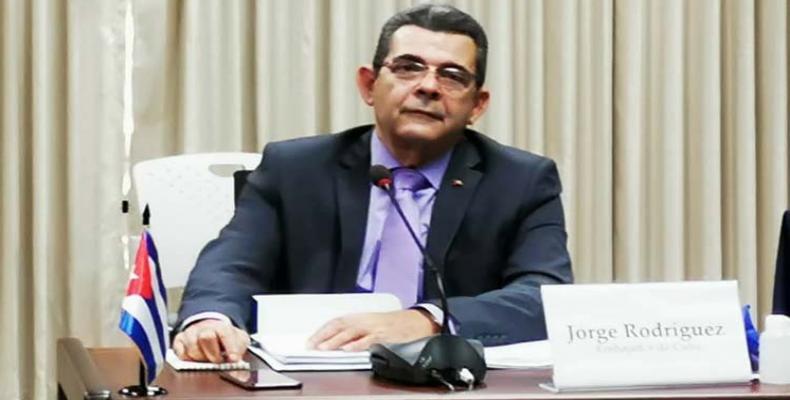San José, June 5 (RHC)-- The Cuban ambassador to Costa Rica, Jorge Rodríguez, denounced that the U.S. blockade against his country prevented Cuba's representatives from participating in the Superior Council of the XXIII General Assembly of FLACSO.
The Cuban representatives could not participate this Thursday in the Superior Council of the Latin American Faculty of Social Sciences (FLACSO) due to the prohibition of the use of the Zoom application imposed on Cuba by the unilateral economic, commercial and financial blockade of the United States.
Speaking this Friday in the debate on the General Secretariat's report, the Cuban ambassador in Costa Rica recalled that the same thing happened recently during a meeting of the Organization of African, Caribbean and Pacific States on the COVID-19 pandemic.
Rodriguez said that the administration of President Donald Trump is even obvious that the world and in particular Cuba is immersed in the confrontation of the new SARS-CoV-2 coronavirus and this week announced new measures against the Caribbean nation that intensify the economic siege they have maintained against the Cuban people for almost six decades.
He said that seven new additions to the controversial list of Cuban entities restricted to the United States will come into force next week. The United States, he said, cannot carry out direct financial transactions with the entities and sub-entities noted on that list, which includes more than 200 names of Cuban institutions.
Now, the U.S. State Department has added the financial institution Fincimex; the Marqués de Cárdenas de Montehermoso, Regis and Playa Paraíso hotels; the Varadero Diving Center; the Gaviota Las Molas International Diving Center, and the Cayo Naranjo Dolphinarium.
The Cuban diplomat specifically mentioned the case of the addition of Fincimex to the list, because it could further affect the sending of remittances from abroad. In February, the company Western Union suspended the sending of money to Cuba from any country other than the United States.


